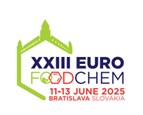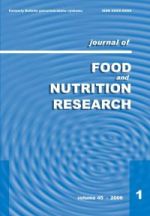Vedecký časopis - archív
Journal of Food and Nutrition Research
Súhrny čísla 1 / 2017
Sadowska-Rociek, A.
Impact of spices addition on 3-monochloropropane-1,2-diol formation in biscuit and cracker model systems
Journal of Food and Nutrition Research, 56, 2017, č. 1, s. 1-9
Anna Sadowska-Rociek, Malopolska Centre of Food Monitoring, Faculty of Food Technology, University of Agriculture in Krakow, Balicka 122, 30-149 Krakow, Poland.
Received 16 May 2016; 1st revised 8 July 2016; 2nd revised 16 August 2016; 3rd revised 22 October 2016; accepted 18 November 2016; published online 28 November 2016
Súhrn: The effect of the addition of ten selected spice extracts (caraway seeds, bell pepper, black pepper, garlic, Herbes de Provence, cinnamon, ginger, gingerbread spice, star anise, vanilla) on the 3-monochloropropane-1,2-diol (3-MCPD) formation in biscuit (sweet) and cracker (salty) model systems was investigated. 3-MCPD levels were analysed in the relation to the spices’ antioxidant capacity, total polyphenol and protein content, and the lipase activity increase with added extracts. The experiment revealed that, although no correlations between antioxidant capacity or total polyphenol content and the 3-MCPD levels were found, the presence of spices influenced the 3-MCPD formation. In case of the cracker model system, the addition of spices rich in proteins, such as caraway seeds, resulted in a lower 3-MCPD formation, while the presence of garlic led to a higher 3-MCPD content compared to control samples. For the biscuit model system, a positive influence of residual lipase content or the compounds increasing the lipase activity on 3-MCPD formation was observed. The experiment also showed that heating foods containing garlic, ginger, star anise or vanilla extracts in the presence of salt might contribute to the increase of the amount of 3-MCPD generated even if no fat is added.
Kľúčové slová: 3-monochloropropane-1,2-diol; spices; cereal model systems; lipase activity
Na stiahnutie:
jfnr201701.pdf (PDF, 303.47 Kb, 4230x)










